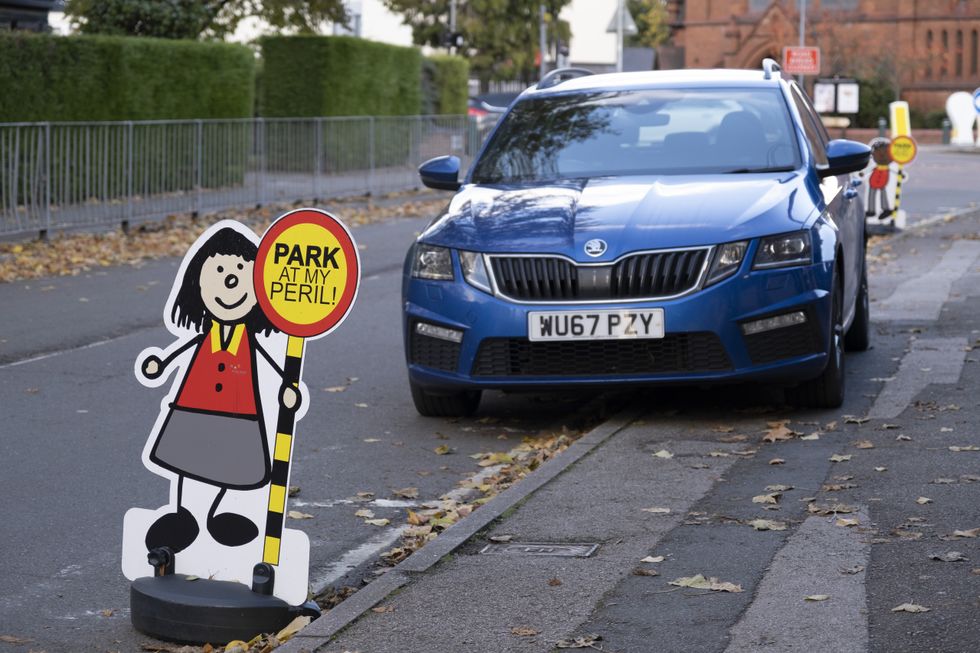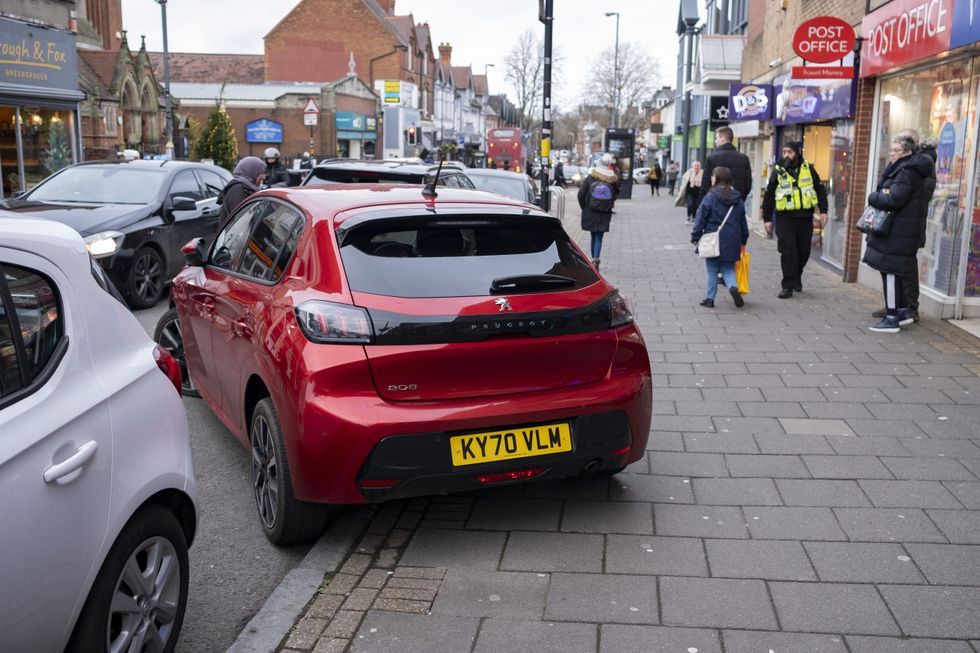Hemma Visavadia
Guest Reporter
Drivers could be slapped with a £70 fine for parking on pavements as the Department for Transport (DfT) considers extending London's ban nationwide.
The potential move was raised at the latest Transport Committee meeting with Transport Secretary Louise Haigh suggesting the ban would bring the rest of the country in line with the capital's rules, which have been in place since 1974.
Haigh told the Transport Committee: "I completely recognise how important it is for accessibility. We’re considering what options we have available, because we want to make sure that any measures are not burdensome on local authorities and are done in the most effective way."
She also stressed that her team is committed to responding to a previous consultation on the issue "as soon as possible".
Do you have a story you'd like to share? Get in touch by emailing [email protected]

The proposed nationwide ban comes as recent research highlights the importance of walkable environments for local communities and businesses.
Currently, pavement parking rules create a confusing patchwork across the country, with London being the only area where it is explicitly illegal.
If implemented, the new regulations would create a unified approach to pavement parking enforcement, marking a significant shift in how residential streets are managed.
Under current Highway Code rule 244, drivers "MUST NOT park partially or wholly on the pavement in London and should not do so elsewhere unless signs permit it." But the rules create two different legal scenarios across the country.
In London, the "must not" carries legal weight, meaning drivers can be fined for pavement parking. However, in the rest of the UK, the "should not" is merely advisory and lacks legislative backing, experts have highlighted.
The difference in regulations has also led to inconsistent enforcement across different regions, with local authorities taking varying approaches to pavement parking violations.
But Haigh detailed how a proposed nationwide ban would eliminate this confusion by implementing London-style restrictions across the country.
Rule 242 of the Highway Code adds another layer of complexity to pavement parking regulations. This rule states drivers "MUST NOT leave your vehicle or trailer in a dangerous position or where it causes any unnecessary obstruction of the road."
Unlike the advisory nature of pavement parking rules outside London, this regulation carries legal weight nationwide.
Drivers can receive a Fixed Penalty Notice if their vehicle is judged to be in a dangerous position or causing unnecessary obstruction.
This means that even in areas where pavement parking isn't explicitly illegal, motorists could still face penalties if their parking creates hazards.
The rule particularly applies when parked vehicles force pedestrians, especially wheelchair users or those with prams, to walk in the road.
To combat this, the RAC advised drivers outside London to use common sense when considering pavement parking. In areas with narrow roads, parking partially on the pavement may be acceptable if parking fully on the road would block other vehicles, particularly emergency services.
LATEST DEVELOPMENTS:

The potential nationwide pavement parking ban also aligns with recent findings about the benefits of walkable environments for local businesses.
Living Streets' latest Pedestrian Pound report revealed that pedestrians spend more money than car users in town centres.
Chris Boardman, National Active Travel Commissioner, said: "Walkable high streets make for vibrant, happier and healthier communities, which is of course good for business."
Find Out More...
The potential move was raised at the latest Transport Committee meeting with Transport Secretary Louise Haigh suggesting the ban would bring the rest of the country in line with the capital's rules, which have been in place since 1974.
Haigh told the Transport Committee: "I completely recognise how important it is for accessibility. We’re considering what options we have available, because we want to make sure that any measures are not burdensome on local authorities and are done in the most effective way."
She also stressed that her team is committed to responding to a previous consultation on the issue "as soon as possible".
Do you have a story you'd like to share? Get in touch by emailing [email protected]

The proposed nationwide ban comes as recent research highlights the importance of walkable environments for local communities and businesses.
Currently, pavement parking rules create a confusing patchwork across the country, with London being the only area where it is explicitly illegal.
If implemented, the new regulations would create a unified approach to pavement parking enforcement, marking a significant shift in how residential streets are managed.
Under current Highway Code rule 244, drivers "MUST NOT park partially or wholly on the pavement in London and should not do so elsewhere unless signs permit it." But the rules create two different legal scenarios across the country.
In London, the "must not" carries legal weight, meaning drivers can be fined for pavement parking. However, in the rest of the UK, the "should not" is merely advisory and lacks legislative backing, experts have highlighted.
The difference in regulations has also led to inconsistent enforcement across different regions, with local authorities taking varying approaches to pavement parking violations.
But Haigh detailed how a proposed nationwide ban would eliminate this confusion by implementing London-style restrictions across the country.
Rule 242 of the Highway Code adds another layer of complexity to pavement parking regulations. This rule states drivers "MUST NOT leave your vehicle or trailer in a dangerous position or where it causes any unnecessary obstruction of the road."
Unlike the advisory nature of pavement parking rules outside London, this regulation carries legal weight nationwide.
Drivers can receive a Fixed Penalty Notice if their vehicle is judged to be in a dangerous position or causing unnecessary obstruction.
This means that even in areas where pavement parking isn't explicitly illegal, motorists could still face penalties if their parking creates hazards.
The rule particularly applies when parked vehicles force pedestrians, especially wheelchair users or those with prams, to walk in the road.
To combat this, the RAC advised drivers outside London to use common sense when considering pavement parking. In areas with narrow roads, parking partially on the pavement may be acceptable if parking fully on the road would block other vehicles, particularly emergency services.
LATEST DEVELOPMENTS:
- Floodgates open on £18bn car finance scandal with drivers set to receive huge payouts amid biggest crisis to date
- DVLA warned of urgent 'reforms' as classic car owners risk being 'trapped in a spiral of uncertainty'
- Older motorists reject plans to use self-driving vehicles within years despite 'reducing human error'

The potential nationwide pavement parking ban also aligns with recent findings about the benefits of walkable environments for local businesses.
Living Streets' latest Pedestrian Pound report revealed that pedestrians spend more money than car users in town centres.
Chris Boardman, National Active Travel Commissioner, said: "Walkable high streets make for vibrant, happier and healthier communities, which is of course good for business."
Find Out More...